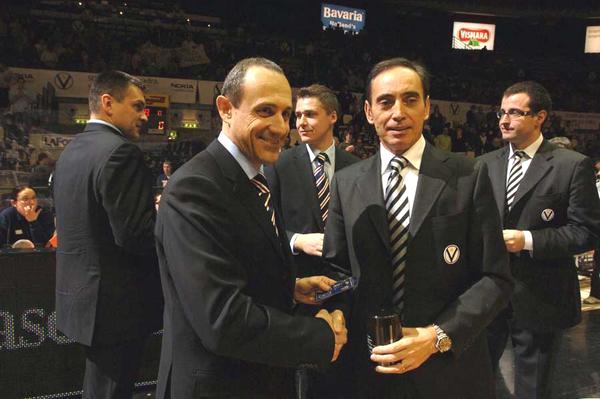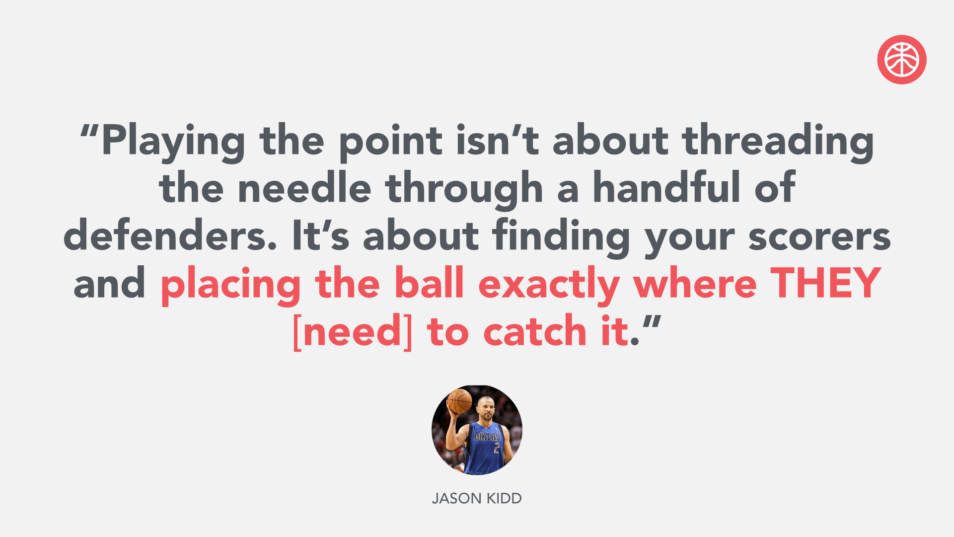
According to renowned Italian and EuroLeague coach, Renato Pasquali, passing is a relationship formed with others. When you do not pass to an open teammate, you are sending them a message: “I did not trust you with our team’s advantage.”
Each Pass Sends a Message
Here’s a look at the different types of passes and what message they send:
- NO PASS = ‘I don’t trust you to do the right thing with the ball.’ (No relationship)
- FORCED PASS = (A forced relationship.) This type of pass is careless. It’s rarely completed or never accurate. It lacks precision and results in fumbles, turnovers, or (more insidious) off balance, (lower percentage) rushed shots. This pass says, “I don’t want it… Here. You take it.” (You could also throw in the million-dollar-pass-with-a-ten-cent-delivery into this category too!).
- “DIRTY” PASS = This is a pass made after holding onto the ball for a long time. This type of pass is an afterthought that says, “I’ve exhausted all other options and my time with the ball. Here… take what’s left.”
- “CLEAN” PASS = A pass made on time and on target. This pass builds a relationship of trust. It says: “I’m thinking about you and what’s needed for the team (in this moment).”
It’s important to develop an understanding in players that when you make a pass to a teammate, a sense of trust develops.
—sef.
A great example of passing “against the grain”. That is passing when the D is helping in, instead of when they are moving back out towards their man. Passing “against the grain” creates more off balanced defenders/longer closeouts for the offense to attack. https://t.co/Rw3B6Noa3q
— Coach Liam Flynn (@coachliamflynn) February 18, 2018
